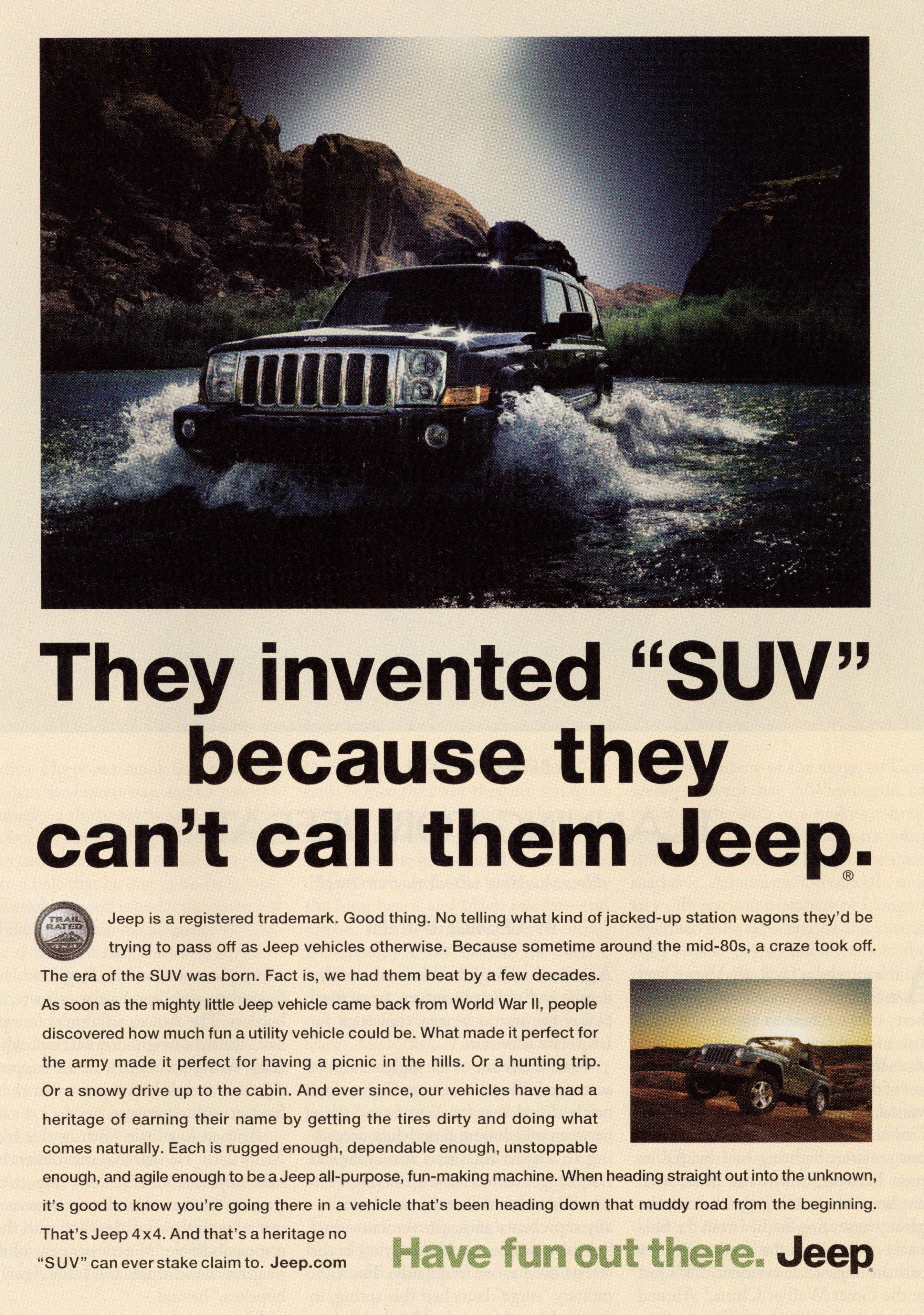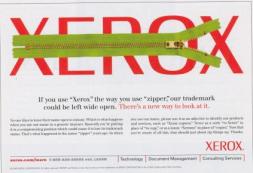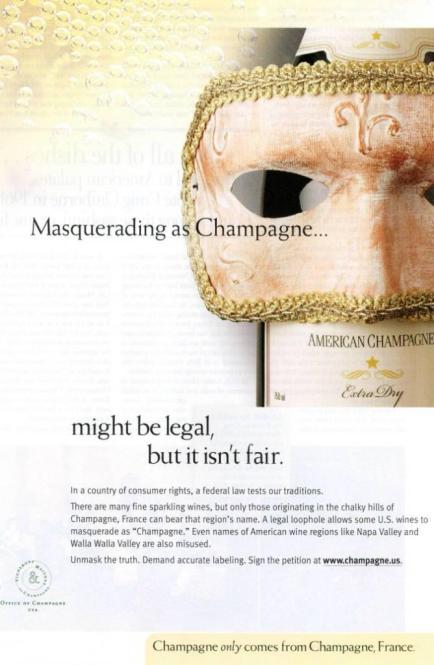Entries in Genericism (21)
Use of Unoriginal Trademarks Risks Confusing Consumers

Dueling USA Networks: the Christian channel I found on vacation (top)
and the well-known one owned by NBC Universal
I’m back from vacation.
I must say, I didn’t think much about trademark law while I was gone. One of the few times was when I came across a channel called “USA Network” on my hotel TV. I had expected to find edited-for-basic-cable movies and shows like “Monk” that are on the USA Network I get as part of my cable TV package at home. Not so. I instead found what appeared to be a channel offering 24-hour Christian content.
Hmmm. The marks are identical — USA NETWORK— and the services are identical — television services. So are these channels somehow related? I don’t think so, but I can’t tell. I guess you could say that I am confused.
Assuming the marks are not owned by NBC Universal, Inc. (which owns the USA Network I get at home), it may be that USA NETWORK is such a weak (if not downright generic) trademark when used in connection with television services that NBC Universal can’t stop lesser-known competitors from using the identical mark for identical services. If that’s the case, it’s not much of a trademark, is it?
Another possibility is that NBC Universal owns the Christian channel I came across. If that’s the case, NBC Universal is confusing viewers and watering down its own brand. That wouldn’t seem terribly smart.
One lesson to take from this is that a company adopts a weak trademark at its own peril. Why pour money into promoting a mark that you can’t protect? And if you have a protectable mark, don’t weaken it by associating it with incongruous goods or services. Doing so will only confuse consumers. Like me.
Chrysler's Ad Tells Consumers Its JEEP SUVs Are Special, Not Generic

My reading isn’t exactly up to date. Yesterday I came across this ad in the Sept. 17, 2007, issue of The New Yorker. The text reads:
“They invented ‘SUV’ because they can’t call them Jeep®.
“Jeep is a registered trademark. Good thing. No telling what kind of jacked-up station wagons they’d be trying to pass off as Jeep vehicles otherwise. Because sometime around the mid-80s, a craze took off. The era of the SUV was born. Fact is, we had them beat by a few decades. As soon as the mighty little Jeep vehicle came back from World War II, people discovered how much fun a utility vehicle could be. What made it perfect for the army made it perfect for having a picnic in the hills. Or a hunting trip. Or a snowy drive up to the cabin. And ever since, our vehicles have had a heritage of earning their name by getting the tires dirty and doing what comes naturally. Each is rugged enough, dependable enough, unstoppale enough, and agile enough to be a Jeep all-purpose, fun-making machine. When heading straight out into the unknown, it’s good to know you’re going there in a vehicle that’s been heading down that muddy road from the beginning. That’s Jeep 4x4. And that’s a heritage no ‘SUV’ can ever stake claim to.”
It’s interesting when companies use scarce advertising dollars to tell consumers not only to buy their products, but also to use their trademarks in the proper way. (See other STL posts on this subject from June 5, 2007 and Oct. 25, 2007.)
This ad does both quite well: “SUV is generic and not special. JEEP is not one of those ordinary SUVs. It denotes a special type of SUV, the original SUV, the one we make. It’s a difference worth taking note of. A difference worth paying for.”
Now, in the year since this ad was published, gas prices have spiked above $4 per gallon and SUVs have fallen out of favor. Chrysler, LLC, has bigger things to worry about than its well-known trademark becoming generic.
It remains to be seen whether Chrysler can address those bigger problems as effectively as I think it addresses this one.
Trademark Dilution Weekend (Part 1)
There’s a whole lotta dilution goin’ on. That’s why this weekend is Trademark Dilution Weekend. Today: XEROX and GOOGLE. Tomorrow: the Ninth Circuit’s amended decision applying the “new” Trademark Dilution Revision Act standards in Jada Toys v. Mattel, Inc.
 The Afro-IP blog, all the way from South Africa and the United Kingdom, apparently follows U.S. politics pretty closely, because yesterday it latched onto a phrase Hilary Clinton used in her Feb. 21 debate with Barack Obama. She reportedly called him the candidate of “change you can Xerox.” Ms. Clinton’s line reportedly drew boos from the audience, but probably not because of its implications on Xerox’s well-known brand.
The Afro-IP blog, all the way from South Africa and the United Kingdom, apparently follows U.S. politics pretty closely, because yesterday it latched onto a phrase Hilary Clinton used in her Feb. 21 debate with Barack Obama. She reportedly called him the candidate of “change you can Xerox.” Ms. Clinton’s line reportedly drew boos from the audience, but probably not because of its implications on Xerox’s well-known brand.
Afro-IP points out that Ms. Clinton’s statement — now re-published in headlines around the world — is something of a setback for Xerox Corp., which has campaigned against the public’s using its trademark as a noun or verb for fear its mark will become generic. (In October, STL discussed a Xerox anti-genericide advertisement here.)
 Afro-IP states: “To date, the Xerox company has provided a successful example of a company which was able to prevent the genericide of its core trademark through an extensive public relations campaign advising consumers to ‘photocopy’ instead of ‘Xeroxing’ documents (the brand did become generic in Russian, Bulgarian, Portuguese and Romanian though). The Xerox company also has extensive operations in Africa, where its customers will be tuning into the US election extravaganza.”
Afro-IP states: “To date, the Xerox company has provided a successful example of a company which was able to prevent the genericide of its core trademark through an extensive public relations campaign advising consumers to ‘photocopy’ instead of ‘Xeroxing’ documents (the brand did become generic in Russian, Bulgarian, Portuguese and Romanian though). The Xerox company also has extensive operations in Africa, where its customers will be tuning into the US election extravaganza.”
While Ms. Clinton’s comment isn’t going to turn a protectable trademark into a generic one, it must be giving Xerox’s branding people fits.
The Illinois Business Law Journal reports this sort of thing is what Google Inc. has been trying to avoid. It recently published a nice article chronicling that company’s efforts to hold on its trademark rights. Here’s its take on two events from 2006:
 “In early 2006, a television commercial for Pontiac automobiles urged viewers to ‘Google ‘Pontiac’ to find out’ more. Curiously, Google did not object to the commercial’s usage of ‘Google’ as a verb, even though the infraction seems similar to various other instances that prompted a letter from Google’s attorneys. Indeed, Google essentially consented to the commercial’s usage of ‘Google,’ since Pontiac contacted Google to obtain permission for use in the ad. This particular instance of generic use may be especially damaging to Google, since their consent to the use is similar to that of the Otis Elevator Company, which weighed heavily in the finding of genericness. However, Google might successfully argue that the video of the commercial included images of the Google search page being used, reinforcing the public’s understanding that the phrase ‘Google ‘Pontiac’ to find out more’ means use of the Google search engine.
“In early 2006, a television commercial for Pontiac automobiles urged viewers to ‘Google ‘Pontiac’ to find out’ more. Curiously, Google did not object to the commercial’s usage of ‘Google’ as a verb, even though the infraction seems similar to various other instances that prompted a letter from Google’s attorneys. Indeed, Google essentially consented to the commercial’s usage of ‘Google,’ since Pontiac contacted Google to obtain permission for use in the ad. This particular instance of generic use may be especially damaging to Google, since their consent to the use is similar to that of the Otis Elevator Company, which weighed heavily in the finding of genericness. However, Google might successfully argue that the video of the commercial included images of the Google search page being used, reinforcing the public’s understanding that the phrase ‘Google ‘Pontiac’ to find out more’ means use of the Google search engine.
“In mid-2006, Merriam-Webster’s Collegiate Dictionary added the term ‘Google’ as a verb. However, the dictionary’s lexicographers were sensitive to Google’s attempts to protect its trademark, and crafted the entry accordingly: ‘to use the Google search engine to obtain information about (as a person) on the World Wide Web’. The induction into Webster’s dictionary was marked by an article in the Washington Post, which drew a cookie-cutter letter from Google’s trademark lawyers. Like its previous letter to Word Spy, this response This in turn sparked cries of outrage and disappointment for Google’s apparent lack of humor.”
So, what’s the future hold for Google’s mark? The Illinois Business Law Journal thinks it will remain protectable as long as Google remains vigilant in protecting it against everyday use — like Ms. Clinton’s use of XEROX.
Photo credit: Reuters/Jessica Rinaldi (Democratic debate)
Are Anti-Genericism Ads Effective?
An anti-genericism ad from this month’s ABA Journal:
“If you use ‘Xerox’ the way you use ‘zipper,’ our trademark could be left wide open. There’s a new way to look at it.
“No one likes to leave their name open to misuse. Which is what happens when you use our name in a generic manner. Basically you’re putting it in a compromising position which could cause it to lose its trademark status. That’s what happened to the name ‘zipper’ years ago. So when you use our name, please use it as an adjective to identify our products and services, such as ‘Xerox copiers.’ Never as a verb: ‘to Xerox’ in place of ‘to copy,’ or as a noun: ‘Xeroxes’ in place of ‘copies.’ Now that you’re aware of all this, that should just about zip things up. Thanks.”
These anti-genericism ads fascinate me. If they’re actually effective, why don’t we see more of them? And why are they run on page 27 of publications like the ABA Journal? On the other hand, if they’re not effective, why do owners of famous marks bother running them at all?
Why Don't More Ad Campaigns Address Proper Trademark Use?
Here’s an ad from the Vignerons & Maisons of Champagne, instructing consumers that “Champagne only comes from Champagne, France.” Apparently, some American wineries are selling their sparkling white wines as “champagne” — and are allowed to do so — which irks their French competitors. It’s a nice campaign. But, it raises some questions: if conditioning consumers to use trademarks properly is truly important, and is truly effective, why don’t we see more ads like this one? Do consumers not need much help these days in avoiding the generic use of trademarks and making the proper use of certification marks? Or are such ads ineffective? Or are they just a low priority for trademark owners?
